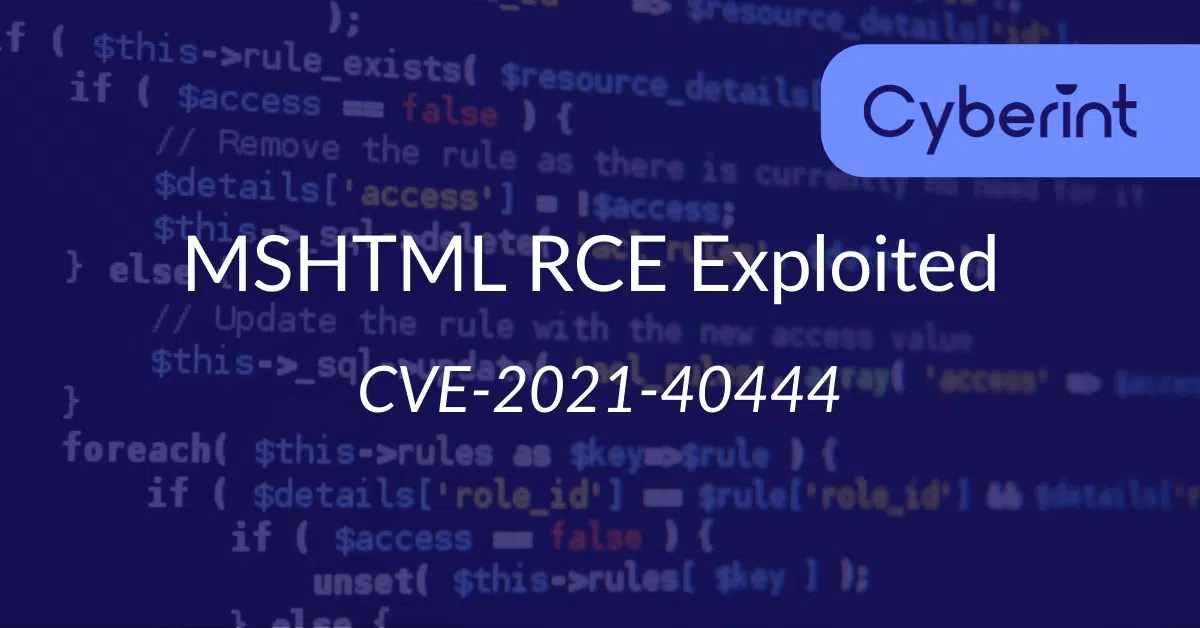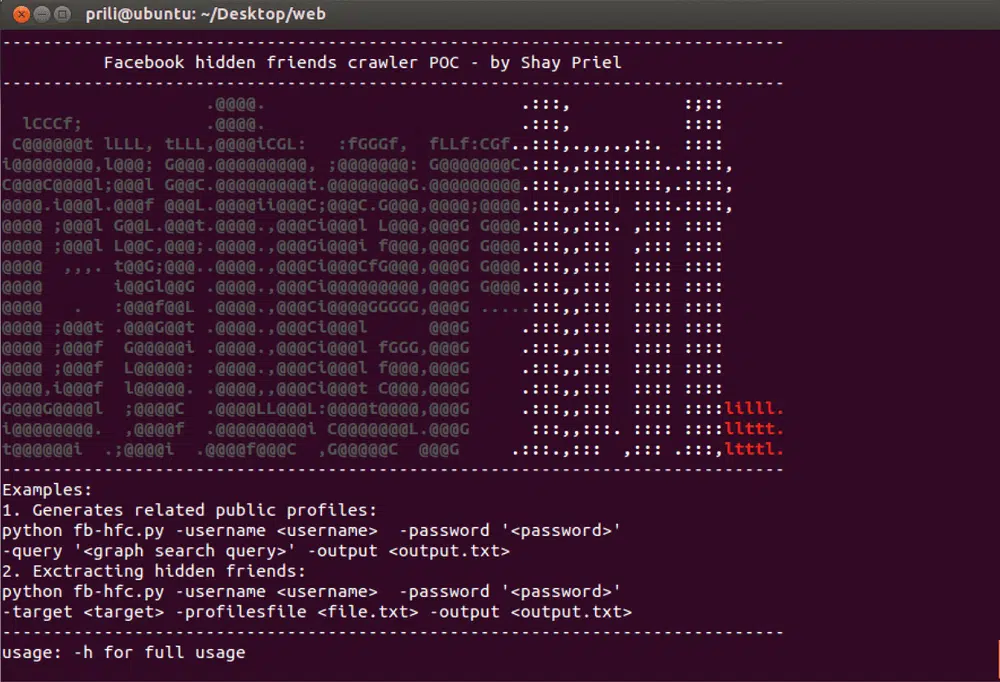


Details of a high severity remote code execution (RCE) vulnerability in Microsoft’s proprietary browser engine ‘MSHTML’, also known as ‘Trident’, were released by Microsoft on September 7, 2021, and promptly followed by reports of active exploitation in the wild.
Identified as CVE-2021-40444, assigned a CVSS score of 8.8, it is understood that the vulnerability has been exploited through the delivery of a weaponized Microsoft Office document utilizing an ActiveX control to download a remote malicious payload that is subsequently executed on the victim machine.
Whilst the MSHTML component is commonly used by Internet Explorer, a now defunct browser, many third-party Windows applications, including Microsoft Office, continue to utilize it and therefore all currently supported versions of Microsoft Windows are potentially vulnerable.
Given the timing of this incident, it is hopeful that Microsoft will attempt to address this in their September 14, 2021 ‘Patch Tuesday’ release although no details of a fix for this issue have been released as yet.
Undoubtedly initially delivered to victims via email, a weaponized Microsoft Office document attachment is thought to contain a specially crafted ActiveX control that that exploits the remote code execution (RCE) vulnerability in MSHTML and leads to the download of an additional payload.
Although technical details of the vulnerability remain vague, reports suggest that it was used in a campaign identified as early as September 1, 2021 with the lure document masquerading as a ‘Small Claims Court’ letter albeit containing a Saudi Aramco logo.
Notably, ‘Protected View’ in Microsoft Office and ‘Application Guard’ in Microsoft Office 365 would prevent this malicious active content from being executed by default and therefore it is likely that an initial lure email would attempt to socially engineer the recipient into bypassing or ignoring any security warnings.
Having successfully convinced the victim to open the document and disable security controls leading to the execution of the ActiveX component, a Microsoft Cabinet (.cab) file is download from a remote server leading to the extraction and execution of a dynamic link library (DLL) payload using rundll32.exe.
In the observed incident, the resulting payload appears to be Cobalt Strike, a legitimate commercial tool often used by red teams, that once operational would provide numerous remote access capabilities to the threat actor including command execution, file transfer, keylogging and privilege escalation.
Whilst there is little detail of these in-the-wild exploitation attempts, the use of a Saudi Aramco logo does not appear consistent with the text of the US-based small claims court lure. Regardless, the increased publicity surrounding this vulnerability and incident may result in those originally responsible for the delivery of these exploits to update and/or modify their campaign in addition to others seeking to capitalize on the attack vector prior to it being fixed by Microsoft.
For reference, the following indicators of compromise (IOC) relate to the reported exploitation of this vulnerability prior to Microsoft publishing details and are provided to assist threat hunters in checking their own environments.
Initial document lure:
938545f7bbe40738908a95da8cdeabb2a11ce2ca36b0f6a74deda9378d380a52
A Letter before court 4.docxObfuscated HTML/JS:
2e328b32f8c7081fbe0aa8407b1b93d1120ac1c8a6aa930eeba1985c55a0daa0
a.htmld0fd7acc38b3105facd6995344242f28e45f5384c0fdf2ec93ea24bfbc1dc9e6
side.htmlActiveX Downloaded Payload:
1fb13a158aff3d258b8f62fe211fabeed03f0763b2acadbccad9e8e39969ea00
ministry.cab8168e909e68d7eea4c5e56c52ae10886911f2863f0c333afc3bed1f99a40e621
consist.caba8e04dc3ba71c5e56898a845d43e2d43ec39660679c971831d1a32740d3b125cDropped Payload (Cobalt Strike):
6eedf45cb91f6762de4e35e36bcb03e5ad60ce9ac5a08caeb7eda035cd74762b
%HOME%unpackchampionship.infAdditional payloads potentially related to this campaign:
The following Cobalt Strike configuration was extracted from a payload related to the recently observed campaign:
{
"BeaconType": [
"HTTPS"
],
"Port": 443,
"SleepTime": 5000,
"MaxGetSize": 2796542,
"Jitter": 22,
"C2Server": "dodefoh[.]com,/ml.html,joxinu[.]com,/hr.html",
"HttpPostUri": "/ky",
"Malleable_C2_Instructions": [
"Remove 338 bytes from the beginning",
"Base64 decode",
"NetBIOS decode 'A'"
],
"SpawnTo": "AAAAAAAAAAAAAAAAAAAAAA==",
"HttpGet_Verb": "GET",
"HttpPost_Verb": "POST",
"HttpPostChunk": 0,
"Spawnto_x86": "%windir%\syswow64\rundll32.exe",
"Spawnto_x64": "%windir%\sysnative\rundll32.exe",
"CryptoScheme": 0,
"Proxy_Behavior": "Use IE settings",
"Watermark": 1580103814,
"bStageCleanup": "True",
"bCFGCaution": "False",
"KillDate": 0,
"bProcInject_StartRWX": "False",
"bProcInject_UseRWX": "False",
"bProcInject_MinAllocSize": 16583,
"ProcInject_PrependAppend_x86": [
"kJCQkJA=",
"Empty"
],
"ProcInject_PrependAppend_x64": [
"kJCQkJA=",
"Empty"
],
"ProcInject_Execute": [
"CreateThread",
"CreateRemoteThread",
"RtlCreateUserThread"
],
"ProcInject_AllocationMethod": "VirtualAllocEx",
"bUsesCookies": "True",
"HostHeader": ""
}
Obfuscated HTML/JS initially accessed by the malicious document lure:
hxxp://hidusi[.]com/e8c76295a5f9acb7/side.html
23[.]106[.]160[.]25hxxps://hidusi[.]com/e8c76295a5f9acb7/side.html
23[.]106[.]160[.]25Subsequent Microsoft Cabinet (.CAB) files:
hxxp://hidusi[.]com/e8c76295a5f9acb7/ministry.cab
hxxp://hidusi[.]com/e273caf2ca371919/consist.cab
Cobalt Strike command and control (C2):
hxxps://dodefoh[.]com/ml.html
45[.]147[.]229[.]242hxxps://joxinu[.]com/hr.html
108[.]62[.]118[.]69Additional malicious infrastructure potentially linked to this campaign:
hxxp://macuwuf[.]com/get_load
45[.]153[.]241[.]127[1] https://msrc.microsoft.com/update-guide/vulnerability/CVE-2021-40444
©1994–2026 Check Point Software Technologies Ltd. All rights reserved.
Copyright | Privacy Policy | Cookie Settings | Get the Latest News
Fill in your business email to start


